Description
What’s in Dysport
Dysport 500 unit
Dysport has been approved by US FDA in 2009 for carrying out the treatment of cervical dystonia or blepharospasm in the adults, apart from cosmetic treatment. These have been running successfully over the years. Each sterile vial contains 500 units of lyophilized abobotulinumtoxinA. Nonmedicinal ingredients: human serum albumin and lactose.
Botulinum toxin belongs to the class of medications called neuromuscular paralytic agents. It blocks the nerves that are responsible for muscle activity. For cosmetic purposes, it can be used to smooth out facial lines and wrinkles, such as those that form between the eyebrows, on the forehead, and around the eyes (crow’s feet). It gives skin a smoother appearance by relaxing the muscles in the area where it was injected. It may also be used to treat cervical dystonia, also known as spasmodic torticollis, a condition in which the muscles of the neck stay in a state of contraction, and to treat focal spasticity such as arm spasms after a stroke. Dysport 500 unit
Possible side effects
Dysport 500 unit
- drooping of the upper eyelid
- face pain
- general feeling of being unwell
- headache
- muscle weakness at the injection site
- nausea
- pain, tenderness or bruising, burning, swelling, or stinging at the injection site
- redness of the skin
- stuffy nose
- tightness of the skin
How to use Dysport 500 unit
Dosage Forms & Strengths
injection, powder for reconstitution
- 300 units/vial
- 500 units/vial
Cervical Dystonia
Indicated for cervical dystonia
Initial: 500 unit IM divided among affected muscles
Retreat every 12-16 weeks or longer: 250-1000 unit IM
Titrate in 250-unit steps
Spasticity
Indicated for treatment of spasticity in adults
Select dose based on muscles affected, severity of muscle activity, prior response to treatment, and adverse event history (EMG guidance recommended)
Do not inject >1 mL at any single injection site; the maximum total dose (upper and lower limb combined) is 1500 units
Repeat treatment when the effect of a previous injection has diminished, but no sooner than 12 weeks after the previous injection
A majority of patients are retreated between 12-16 weeks, although some may have a longer response (eg, 20 wk)
Upper limb spasticity
-
Dose per muscle
- In the clinical trial, doses of 500-1000 units were divided among selected upper limb muscles at a given treatment session
- Flexor carpi radialis: 100-200 units in 1-2 sites
- Flexor carpi ulnaris: 100-200 units in 1-2 sites
- Flexor digitorum profundus: 100-200 units in 1-2 sites
- Flexor digitorum sublimis: 100-200 units in 1-2 sites
- Brachialis: 200-400 units in 1-2 sites
- Brachioradialis: 100-200 units in 1-2 sites
- Biceps brachii: 200-400 units divided in 1-2 sites
- Pronator Teres: 100-200 units in 1 site
Lower limb spasticity
-
Dose per muscle
- In the clinical trial, doses of 1000-1500 units were divided among selected lower limb muscles at a given treatment session
- Gastrocnemius medial head: 100-150 units in 1 site
- Gastrocnemius lateral head: 100-150 units in 1 site
- Soleus: 330-500 units in 3 sites
- Tibialis posterior: 200-300 units in 2 sites
- Flexor digitorum longus: 130-200 units in 1-2 sites
- Flexor hallucis longus: 70-200 units in 1 site
Glabellar Lines
Indicated for temporary improvement in the appearance of moderate to severe glabellar lines associated with procerus and corrugator muscle activity in adults aged <65 years
50 units total divided in 5 equal doses IM to affected muscles
Retreat no sooner than 3 months
Dosage Modifications
Renal or hepatic impairment: No dose adjustment necessary
Essential Blepharospasm (Orphan)
Orphan indication sponsor
- Porton International, Inc; 1155 15th Street, N.W., #315; Washington, DC 20005
Spasmodic Torticollis (Orphan)
Treatment of spasmodic torticollis (cervical dystonia)
Orphan indication sponsor
- Ipsen Biopharm Limited; 1 Bath Road Maidenhead, Berkshire, SL6 4UH; UK
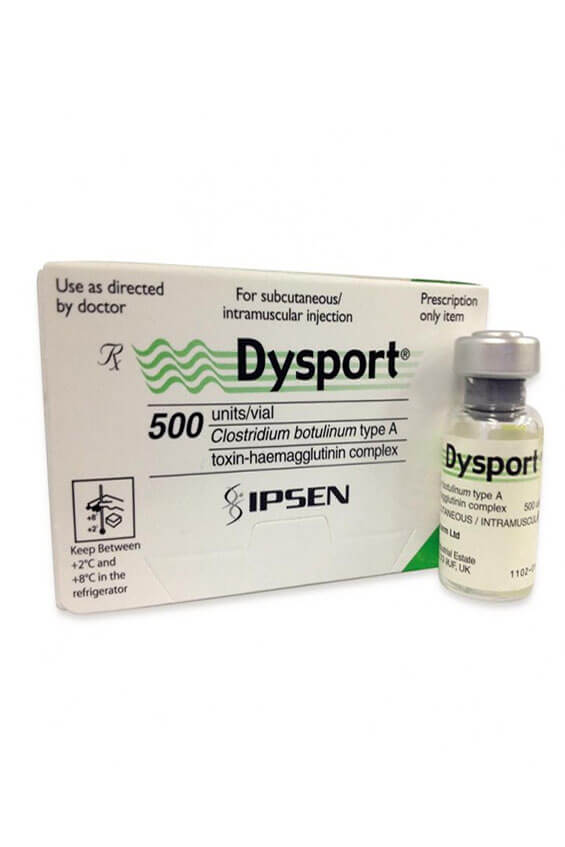
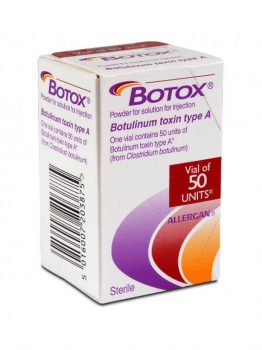
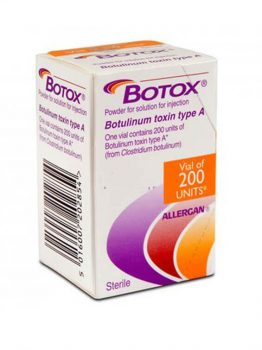
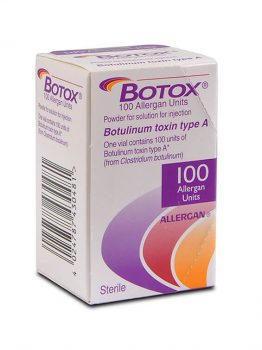
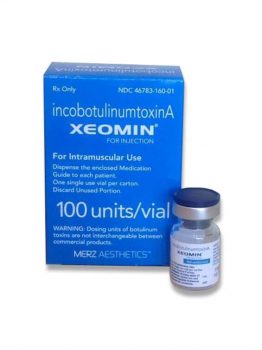
Reviews
There are no reviews yet.